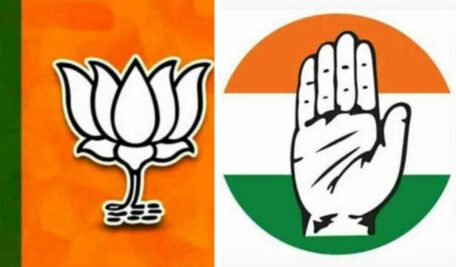Matics and Omics: Where Biology meets big data – A roadmap for Indian students in US universities
Biology today involves data and coding. US universities offer top programs in bioinformatics and omics, helping Indian students work on genomics, disease research, and personalised medicine. EducationUSA guides students on applying to study these cutting-edge fields in America

Hyderabad: In today’s digital era, biology is no longer confined to microscopes and petri dishes. It has become data-driven, computational, and multi-dimensional. At the heart of this transformation are the fields of bioinformatics and omics, where big data meets molecular biology to unlock breakthroughs in medicine, healthcare, agriculture, and environmental sciences.
For Indian students aiming to contribute meaningfully to the global scientific community, US universities offer a world-class launchpad into these rapidly advancing domains.
Understanding “Omics” and “Matics”
The term omics has emerged to describe large-scale, data-rich biological fields ending in the suffix “-ome.” These include the genome, transcriptome, proteome, and metabolome. These are collectively called the “four big omics.” Other related areas include epigenomics, epitranscriptomics, and epi-proteomics.
On the other hand, bioinformatics—a key part of the broader “matics” group—is the computational backbone of modern biology. It combines computer science, statistics, and mathematics to analyse, store, and interpret complex biological data.
Why the US is leading this Biological revolution
The United States is at the forefront of research and innovation in omics and bioinformatics. American universities are pioneering not just in terms of academic excellence, but also in creating high-impact research environments through interdisciplinary collaboration, advanced lab infrastructure, and industry integration.
Bioinformatics: A perfect blend of Biology and code
Students in this discipline learn to work with large datasets from genome sequencing, develop tools for predicting protein structures, and analyse patterns to identify disease markers or drug targets.
Key areas of study in bioinformatics include:
● Statistical modeling and hypothesis testing
● Algorithm development for biological sequence analysis
● Machine learning applications in genomics
● Biological database development and management
Omics: Unlocking life at the molecular level
Omics technologies allow scientists to look at biological systems in unprecedented detail. US universities offer exposure to a wide range of omics-based coursework and research, including
● Genomics – Understanding the complete DNA sequence of an organism, essential for genetic testing, gene therapy, and personalised medicine.
● Transcriptomics – Studying RNA expression to analyse how genes are turned on and off in different conditions.
● Proteomics – Investigating proteins to understand diseases at the cellular level.
● Metabolomics – Mapping small molecules involved in metabolism to develop targeted treatments and diagnostics.
● Multi-omics – Integrating multiple datasets to offer a holistic view of complex biological systems.
These technologies are now widely used in developing personalised medicines, vaccines, and even predictive models to prevent future pandemics.
Graduate Programs in the US: What Indian students can expect
Most US universities offer programs that are structured to combine theoretical coursework with practical, lab-based projects. Students learn how to analyse real-world biological data, use AI and machine learning to solve biological problems, and develop bioinformatics software tools.
A typical curriculum may include Molecular biology and biochemistry, Data structures and algorithms, Genomic sequencing and annotation, Machine learning in biomedical research and Scientific computing and visualisation.
Some institutions also offer joint programs that combine life sciences with computer science, giving students a broader and more versatile skill set.
Career paths post-graduation:
● Bioinformatics analyst
● Computational biologist
● Data scientist in biotech/pharma
● Research scientist in academic or government labs
● Healthcare informatics specialist
India’s Growing Demand for Omics and Bioinformatics Experts
Initiatives like the Genome India Project and personalised cancer treatment trials highlight the urgent need for skilled computational biologists. Moreover, platforms like the BioInfoKnowledgeBase (BIKB) are making it easier for researchers to access essential databases and tools, which are now critical for even the most basic biological studies.
Preparing yourself for a future in Omics
If you’re an Indian student planning to enter this exciting field, start early by strengthening your foundations:
● Academics: Focus on core subjects like calculus, statistics, molecular biology, organic chemistry, and computer programming.
● Technical Skills: Familiarise yourself with tools like R, Python, BLAST, Bioconductor, and Cytoscape.
● Research Exposure: Participate in internships, online bioinformatics challenges, or open-source biological data projects to build your portfolio.
Conclusion: A new age of Biology, and a new role for you
The fusion of biology and big data is one of the most transformative trends of our time. For Indian students, studying in the United States opens up unmatched opportunities to become part of this revolution.
Whether you aspire to develop next-gen vaccines, personalise medical treatments, or improve agriculture through genomics, mastering omics and bioinformatics will give you the tools to lead and innovate.
EducationUSA is the US Department of State’s official resource for accurate, free, and up-to-date information about studying in the United States. Students can download the EducationUSA India app, available for free on iOS and Android devices, for the latest information about the college application process. Or visit https://educationusa.in/.
In Hyderabad, please visit the only EducationUSA center at,
EducationUSA@YAxis Foundation
S L Jubilee, Road No.36, Jubilee Hills,
Hyderabad-500033
Landline: 9000522000
Mobile: 91 9618680143 | 9618761143
Email: HyderabadYAF@educationusa.org
Website: https://educationusa.state.gov
Related News
-
TG EAPCET 2026 registrations begin February 19; Exams in May
7 mins ago -
Young man dragged for kms by Mercedes in Ranchi, Jharkhand HC lawyer detained
42 mins ago -
Irrawaddy dolphins found near Rushikulya river mouth in Odisha
54 mins ago -
KTR hits back at KCR critics, calls Telangana his lasting legacy
55 mins ago -
Tarique Rahman elected BNP Parliamentary Party leader, to take oath as Bangladesh PM
59 mins ago -
Telangana police have become puppets of the Congress, says Balka Suman
1 hour ago -
Bill Gates’ AI Summit attendance uncertain, conflicting reports emerge
1 hour ago -
Pixxel selects Exotrail thrusters to steer its satellites in orbit
1 hour ago




